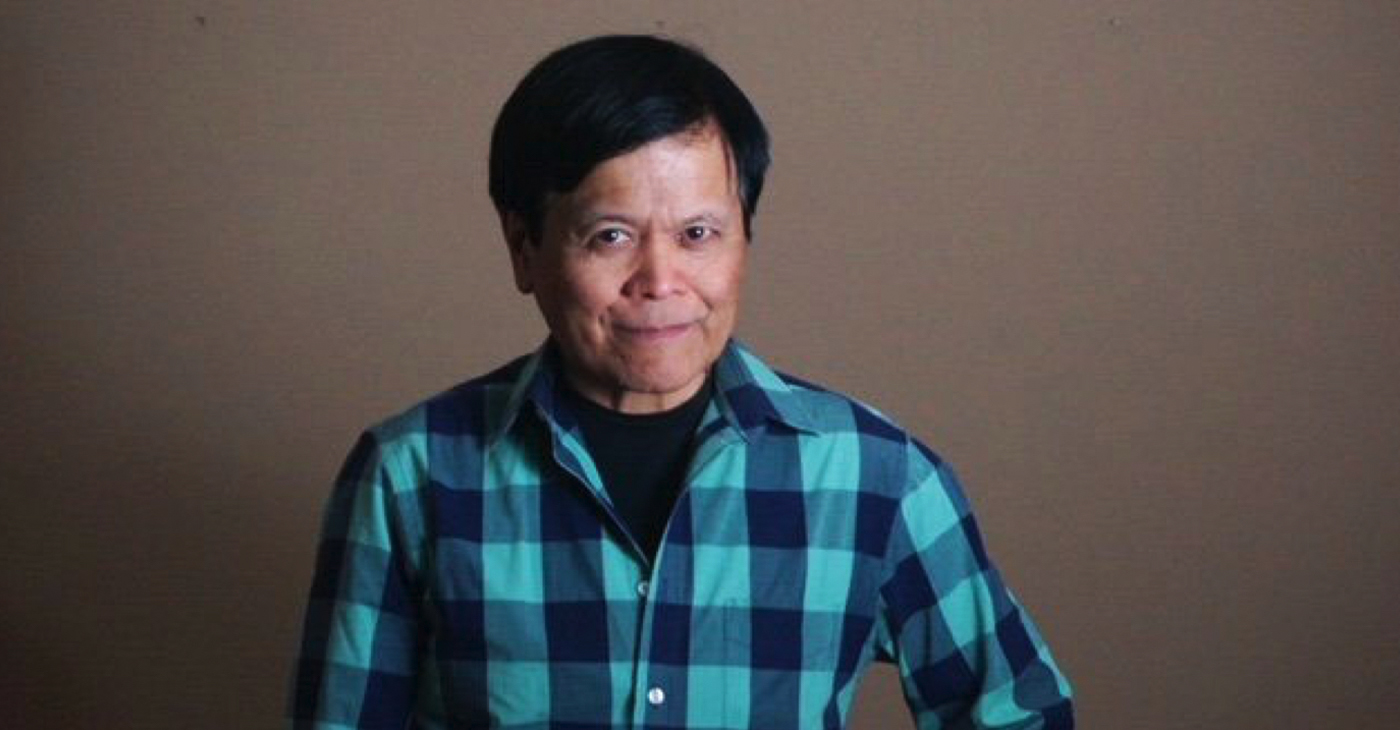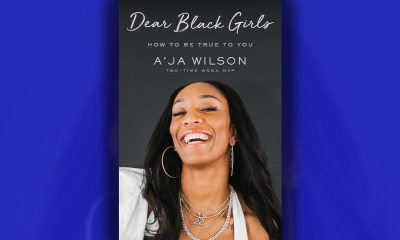Commentary
COMMENTARY: The Agony and Normalcy of Gun Violence in America
When it comes to gun violence in America, it’s go big or get ignored. No one cares about the single victim. Unless there’s some strange twist, it won’t get the kind of media coverage that results in public outrage, with hundreds of people in the streets demanding that politicians take action.

Emil Guillermo
When it comes to gun violence in America, it’s go big or get ignored.
No one cares about the single victim.
Unless there’s some strange twist, it won’t get the kind of media coverage that results in public outrage, with hundreds of people in the streets demanding that politicians take action.
We saw it recently in Tennessee.
And that’s why I want to tell you about the boy known to his mother as “Thai-Thai.”
Thai Khin was a young Asian American you never heard of unless you live in Stockton, California.
Unlike many teens in high school thinking about college and their future, there will be no tomorrow for Khin.
Not like another former Stockton resident who is now the mayor of Oakland.
No, Thai Khin is a 17-year-old with a GoFundMe page — to help his family pay for his funeral.
Khin was shot and killed on Wednesday, April 12 during school hours.
It wasn’t a school shooting. It was school-adjacent.
Khin wasn’t in class at César Chávez High School. He was in a nearby Unity Park playing basketball with a buddy.
That’s when someone tried to rob his friend of the gold necklace around his neck.
The buddy was pistol-whipped; Khin stepped in and tried to stop the fight.
The perp reacted by taking out a gun and putting a bullet into Khin, who died later at a local hospital.
“He had this joy for life. He was always smiling, always cracking jokes,” Jennifer Khin, Thai’s aunt, told the Stockton newspaper. “That’s what he did. If you were around Thai, you were smiling and you were laughing.”
But this was no joke. And now Thai Khin is part of America’s sad legacy.
Another one.
One is a bad number for a gun story. Because a single-victim incident is just a statistic in the Gun Violence Archive.
I reached out to Khin’s family, but I haven’t heard back. I still wanted to write about Khin because an Asian American dying from a gunshot wound shouldn’t be considered normal in America.
And because Khin’s kind of shooting death shouldn’t be greeted with relative silence.
When an Asian American teenager is shot and killed, we all should notice.
But last Monday on the week Khin died, America was already “gunned out” with the Louisville bank shooting, where five were killed.
America paid attention to that.
Yet, how many of the victims in Louisville can we recall a week later?
Or even the Nashville Covenant school shooting on March 27 that claimed three 9-year-olds and three adults in Tennessee?
For that matter, how many of the victims do we remember from the Uvalde school shooting in Texas last year?
Do you recall any of these victims?
There are either too many, or not enough. That’s America’s short attention span.
It appears that the media’s preference is to cover the mass shootings in America. They’re the newsworthy ones.
Single shootings happen so frequently now they are not considered newsworthy.
In other words, it’s what’s normal in America.
When Thai Khin died last week, the Gun Violence Archive, which usually shows deaths within the last 72 hours, listed Khin as the 76th death between April 11 and April 14. I counted 395 people injured. And 104 deaths.
If it were 104 gun deaths in a single event, maybe we’d all finally take notice and force legislators to take action.
But spread the gun deaths out over 72 hours and 104 deaths sound few alarms in America.
Most of the deaths also don’t appear to be caused by a high-powered AR-15 style weapon.
Many were simple handguns.
And that’s why banning assault weapons shouldn’t be the sole remedy as we look for answers. We should be focusing on America’s love of violence.
A gun is just a tool.
We need to talk more about ending violence, period.
How do we do that as a society? Fund public meditation classes? Or public mediation? Teach people non-violent communication skills? And not just for adults but for teens like Thai Khin?
Those paths may be more fruitful than waiting for politicians to defeat the gun lobby.
Consider how this past weekend was the 16th anniversary of the Virginia Tech assault where 32 people were murdered — 27 students and five faculty members in 2007. The Asian American perp also died.
Since then, there has been some legislative action, including background checks, but does any of that really get to the root cause? It impacts the tool. It doesn’t solve the problem. Focusing merely on weapons alone keeps us from the peace we seek as a society.
What if we bypassed the gun lobby and tried to figure out what happens in our personal interactions before a gun, or any weapon, becomes the “go to” answer.
Until we can do that, we won’t solve a thing.
As I write, there were more shootings reported over the past weekend.
The mass shooting was in Dadeville, Ala., where four young people were gunned down at a Sweet 16 party. Corbin Dahmontrey Holston, 23; Marsiah Emmanuel Collins, 19; Philstavious Dowdell, 18; Shaunkivia (KeKe) Nicole Smith, 17. There were 32 others injured. The perp is still on the loose.
In Kansas City, Ralph Yarl, 16, is still alive. But when he rang the doorbell of the wrong house looking for his siblings, why did 84-year-old resident Andrew Lester reach for a .32 caliber handgun? Why didn’t he offer a welcoming hand and say hello?
Lester, white, said he saw Yarl, a Black boy, and was in fear for his life.
How do we fix the implicit bias on Lester’s part?
That’s where our efforts should be.
And it’s not just race. A young white female, Kaylin Gillis, 20, in rural upstate New York pulled into a driveway by mistake. As she left, the white resident Kevin Monahan fired two shots, one killing Gillis. Why was the gun his first and not last resort?
In those cases, at least the perps have been apprehended.
In Thai Khin’s case, the perp got away and is still on the loose.
Justice?
Nobody is even thinking about justice for Thai Khin.
Visit the GoFundMe page for Thai Khin: https://www.gofundme.com/f/thai-khin
NOTE: I will talk about this column and other matters on “Emil Amok’s Takeout,” my micro-talk show. Live @2p Pacific. Livestream on Facebook; my YouTube channel; and Twitter. Catch the recordings on www.amok.com.
Emil Guillermo is an independent journalist/commentator.
Activism
Oakland Post: Week of April 17 – 23, 2024
The printed Weekly Edition of the Oakland Post: Week of April 17 – 23, 2024

To enlarge your view of this issue, use the slider, magnifying glass icon or full page icon in the lower right corner of the browser window. ![]()
Commentary
Opinion: Surviving the Earthquake, an Eclipse and “Emil Amok.”
Last Friday, a 4.8 magnitude earthquake shook New York City, reported as the “biggest earthquake with an epicenter in the NYC area since 1884” when a 5.2 quake hit. A bit bigger. The last quake similar to Friday’s was a 4.9 in 1783.Alexander Hamilton felt it — 241 years ago. That’s why New Yorkers were freaking out on Friday. They were in the room where it happens.

By Emil Guillermo
I’m a Northern Californian in New York City for the next few weeks, doing my one-man show, “Emil Amok, Lost NPR Host, Wiley Filipino, Vegan Transdad.”
I must like performing in the wake of Mother Nature.
Last Friday, a 4.8 magnitude earthquake shook New York City, reported as the “biggest earthquake with an epicenter in the NYC area since 1884” when a 5.2 quake hit. A bit bigger. The last quake similar to Friday’s was a 4.9 in 1783.
Alexander Hamilton felt it — 241 years ago.
That’s why New Yorkers were freaking out on Friday. They were in the room where it happens.
And it just doesn’t happen that often.
Beyonce singing country music happens more frequently.
When I felt New York shake last week, it reminded me of a time in a San Francisco TV newsroom when editors fretted about a lack of news an hour before showtime.
Then the office carpeting moved for a good ten seconds, and the news gods gave us our lead story.
On Friday when it happened in NYC, I noticed the lines in the carpeting in my room wiggling. But I thought it was from a raucous hotel worker vacuuming nearby.
I didn’t even think earthquake. In New York?
I just went about my business as if nothing had happened. After living near fault lines all my life, I was taking things for granted.
Considering the age of structures in New York, I should have been even more concerned about falling objects inside (shelves, stuff on walls) and outside buildings (signs, scaffolding), fire hazards from possible gas leaks, and then I should have looked for others on my floor and in the hotel lobby to confirm or aid or tell stories.
Of course, as a Californian who has lived through and covered quakes in the 4 to 6 magnitude range, I tried to calm down any traumatized New Yorker I encountered by taking full responsibility for bringing in the quake from the Bay Area.
I reassured them things would be all right, and then let them know that 4.8s are nothing.
And then I invited them to my consoling post-Earthquake performance of “Emil Amok, Lost NPR Host…”
It was the night of the eclipse.
ECLIPSING THE ECLIPSE
In New York City, the eclipse was about 90 percent visible. Good enough for me. Though a full solar eclipse is a celestial rarity, blockages of any sort aren’t generally celebrated. My one-man play is about growing up with the eclipsed history of American Filipinos and how I struggle to unblock all that.
For example, did you know the first Filipinos actually arrived to what is now California in 1587? That’s 33 years before the Pilgrims arrived in America on the other coast, but few know the Filipino history which has been totally eclipsed.
I was in Battery Park sitting on a bench and there was a sense of community as people all came to look up. A young woman sitting next to me had a filter for a cell phone camera. We began talking and she let me use it. That filter enabled me to take a picture of the main event with my iPhone.
For helping me see, I invited her and her boyfriend to come see my show.
Coincidentally, she was from Plymouth, Massachusetts, near the rock that says the year the Pilgrims landed in 1620.
In my show she learned the truth. The Pilgrims were second.
History unblocked. But it took a solar eclipse.
Next one in 2044? We have a lot more unblocking to do.
If you’re in New York come see my show, Sat. April 13th, 5:20 pm Eastern; Fri. April 19, 8:10 pm Eastern; and Sun. April 21st 5:20 pm Eastern.
You can also livestream the show. Get tickets at www.amok.com/tickets
About the Author
Emil Guillermo is a journalist and commentator. He does a mini-talk show on YouTube.com/@emilamok1. He wishes all his readers a Happy Easter!
Commentary
Commentary: Republican Votes Are Threatening American Democracy
In many ways, it was great that the Iowa Caucuses were on the same day as Martin Luther King Jr. Day. We needed to know the blunt truth. The takeaway message after the Iowa Caucuses where Donald Trump finished more than 30 points in front of Florida Gov. De Santis and former South Carolina Governor Nikki Haley boils down to this: Our democracy is threatened, for real.

By Emil Guillermo
In many ways, it was great that the Iowa Caucuses were on the same day as Martin Luther King Jr. Day.
We needed to know the blunt truth.
The takeaway message after the Iowa Caucuses where Donald Trump finished more than 30 points in front of Florida Gov. De Santis and former South Carolina Governor Nikki Haley boils down to this: Our democracy is threatened, for real.
And to save it will require all hands on deck.
It was strange for Iowans to caucus on MLK day. It had a self-cancelling effect. The day that honored America’s civil rights and anti-discrimination hero was negated by evening.
That’s when one of the least diverse states in the nation let the world know that white Americans absolutely love Donald Trump. No ifs, ands or buts.
No man is above the law? To the majority of his supporters, it seems Trump is.
It’s an anti-democracy loyalty that has spread like a political virus.
No matter what he does, Trump’s their guy. Trump received 51% of caucus-goers votes to beat Florida Gov. Ron DeSantis, who garnered 21.2%, and former South Carolina Gov. Nikki Haley, who got 19.1%.
The Asian flash in the pan Vivek Ramaswamy finished way behind and dropped out. Perhaps to get in the VP line. Don’t count on it.
According to CNN’s entrance polls, when caucus-goers were asked if they were a part of the “MAGA movement,” nearly half — 46% — said yes. More revealing: “Do you think Biden legitimately won in 2020?”
Only 29% said “yes.”
That means an overwhelming 66% said “no,” thus showing the deep roots in Iowa of the “Big Lie,” the belief in a falsehood that Trump was a victim of election theft.
Even more revealing and posing a direct threat to our democracy was the question of whether Trump was fit for the presidency, even if convicted of a crime.
Sixty-five percent said “yes.”
Who says that about anyone of color indicted on 91 criminal felony counts?
Would a BIPOC executive found liable for business fraud in civil court be given a pass?
How about a BIPOC person found liable for sexual assault?
Iowans have debased the phrase, “no man is above the law.” It’s a mindset that would vote in an American dictatorship.
Compare Iowa with voters in Asia last weekend. Taiwan rejected threats from authoritarian Beijing and elected pro-democracy Taiwanese vice president Lai Ching-te as its new president.
Meanwhile, in our country, which supposedly knows a thing or two about democracy, the Iowa caucuses show how Americans feel about authoritarianism.
Some Americans actually like it even more than the Constitution allows.
About the Author
Emil Guillermo is a journalist and commentator. He does a mini-talk show on YouTube.com/@emilamok1.
-

 Activism4 weeks ago
Activism4 weeks agoOakland Post: Week of March 27 – April 2, 2024
-

 #NNPA BlackPress4 weeks ago
#NNPA BlackPress4 weeks agoCOMMENTARY: D.C. Crime Bill Fails to Address Root Causes of Violence and Incarceration
-

 #NNPA BlackPress4 weeks ago
#NNPA BlackPress4 weeks agoFrom Raids to Revelations: The Dark Turn in Sean ‘Diddy’ Combs’ Saga
-

 #NNPA BlackPress4 weeks ago
#NNPA BlackPress4 weeks agoCOMMENTARY: Lady Day and The Lights!
-

 #NNPA BlackPress4 weeks ago
#NNPA BlackPress4 weeks agoMayor, City Council President React to May 31 Closing of Birmingham-Southern College
-

 #NNPA BlackPress4 weeks ago
#NNPA BlackPress4 weeks agoBaltimore Key Bridge Catastrophe: A City’s Heartbreak and a Nation’s Alarm
-

 #NNPA BlackPress4 weeks ago
#NNPA BlackPress4 weeks agoBaltimore’s Key Bridge Struck by Ship, Collapses into Water
-

 #NNPA BlackPress4 weeks ago
#NNPA BlackPress4 weeks agoBeloved Actor and Activist Louis Cameron Gossett Jr. Dies at 87



















































